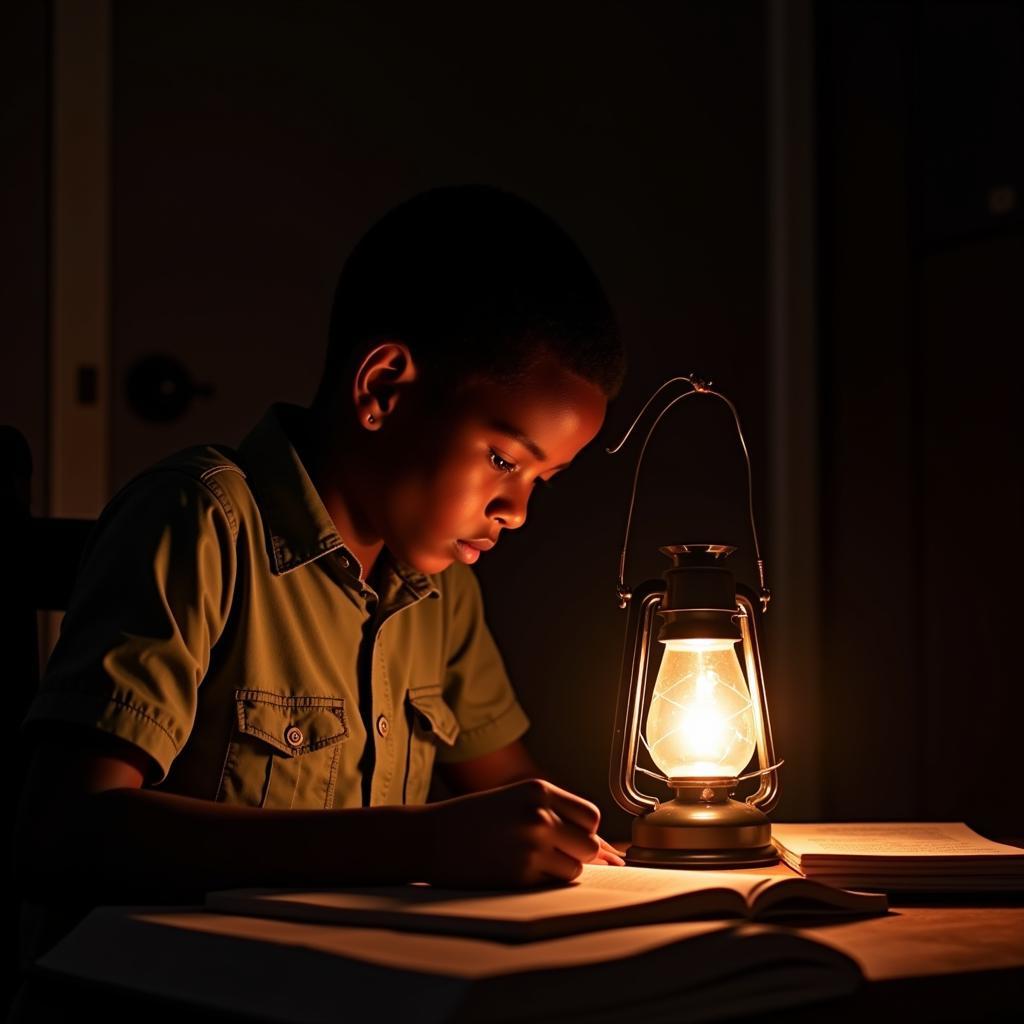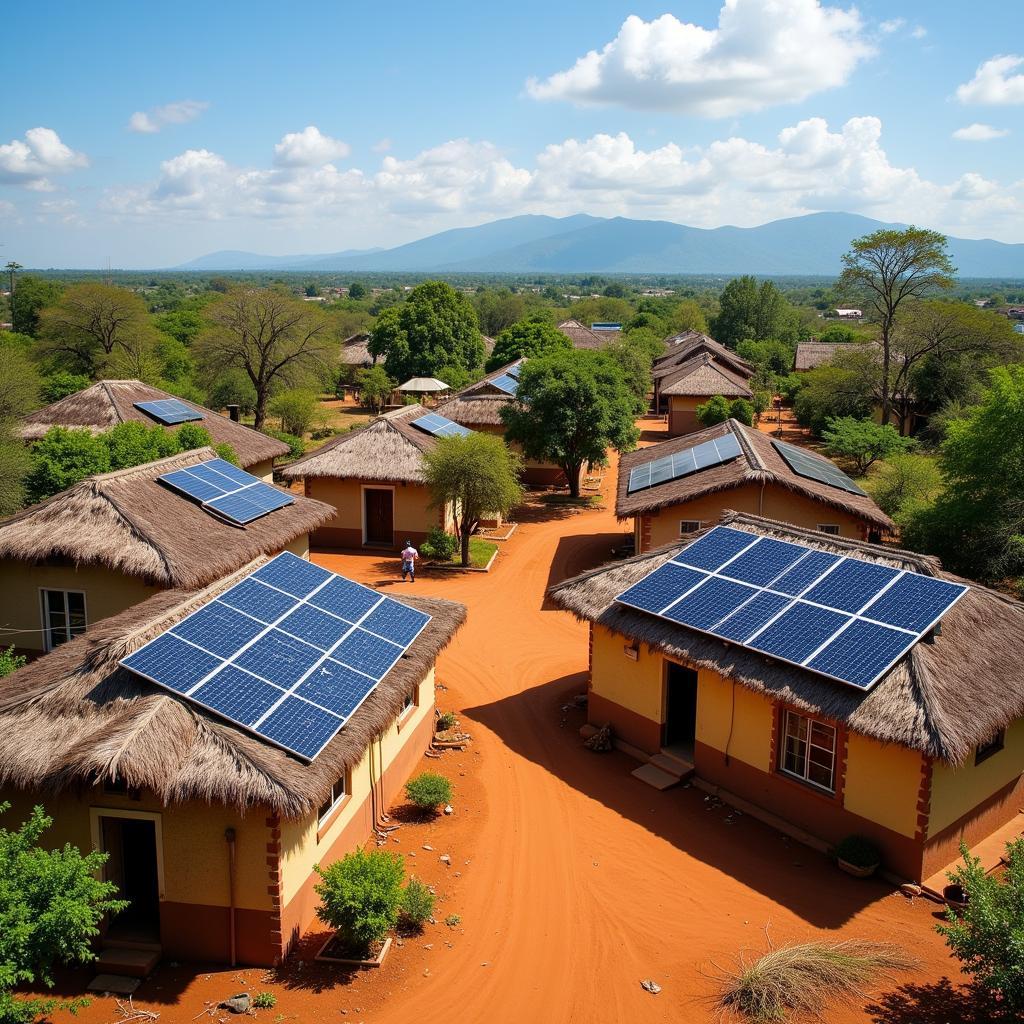The African Child and the Power of Electricity
Access to electricity is a fundamental right, yet for millions of African children, it remains a distant dream. This lack of power directly impacts their education, health, and overall well-being. The disparity between those with access and those without creates a significant barrier to progress and perpetuates the cycle of poverty.
The Impact of Lack of Electricity on an African Child
For an African child, the absence of electricity means studying by the dim light of a kerosene lamp, hindering their ability to learn and complete homework. It limits access to vital information and educational resources available online. Furthermore, healthcare facilities without reliable power struggle to provide essential services, impacting the health and survival of children. Imagine a world without refrigeration for vaccines or the ability to power life-saving medical equipment. This is the reality for many. After the introduction, let’s delve deeper into the specific areas affected by this energy crisis. The consequences are far-reaching and demand immediate attention. You can learn more about this issue and how it relates to the broader context of African development through resources like those discussing the 600 million Africans without electricity.
 African Child Studying by Kerosene Lamp
African Child Studying by Kerosene Lamp
Education in the Dark: The Struggle for Learning
Without electricity, education becomes a significant challenge. Students are unable to study effectively after dark, limiting their learning opportunities. Schools lack access to computers and other technology that could enhance the learning experience. This digital divide further exacerbates existing inequalities. Many children are forced to drop out of school altogether, perpetuating the cycle of poverty. This has long-term implications for the future of these children and the development of the continent.
Healthcare Challenges: A Life or Death Situation
The lack of reliable electricity poses severe challenges to healthcare systems across Africa. Hospitals and clinics struggle to store vaccines, operate essential medical equipment, and provide adequate lighting for surgeries and other procedures. This compromises the quality of care and puts lives at risk, particularly for vulnerable children. Premature babies needing incubators, patients requiring ventilators, and even basic diagnostic procedures are often impossible without a consistent power supply. The lack of electricity translates directly into a higher risk of mortality and morbidity for children. Initiatives aimed at improving access to healthcare must prioritize addressing this critical energy gap. Articles like “African kid polio” highlight the vulnerability of children in such circumstances.
What Can Be Done? Illuminating the Path Forward
Addressing the electricity deficit in Africa requires a multi-pronged approach. Investing in renewable energy sources, such as solar and wind power, is crucial. Developing sustainable and affordable energy solutions tailored to the specific needs of local communities is essential. Improving energy infrastructure and expanding grid access are also vital steps. Additionally, educating communities about energy efficiency and conservation can help maximize the impact of limited resources. Organizations like the African Development Bank play a vital role in funding and supporting these initiatives. Contact information, such as the African Development Bank Abuja contact, can be helpful for those interested in learning more about their work.
 African Village with Solar Panels
African Village with Solar Panels
Conclusion: Powering a Brighter Future for African Children
Access to electricity is not a luxury; it is a necessity for the development and well-being of African children. By investing in sustainable energy solutions, we can empower these children to reach their full potential and build a brighter future for Africa. The lack of electricity is a significant impediment to progress, and overcoming this challenge is essential for achieving sustainable development goals. Supporting initiatives that aim to improve access to electricity is an investment in the future of Africa. Learn more about the specific challenges faced by African children and the efforts being made to address them by exploring resources like those focusing on adoption in African countries. These resources can provide valuable insights into the broader social and economic context affecting children’s lives in Africa.
FAQ
- How does lack of electricity affect education in Africa?
Lack of electricity limits study time, access to educational resources, and contributes to higher dropout rates. - What are the health implications of no electricity for African children?
It compromises healthcare services, impacting vaccine storage, medical equipment operation, and increasing child mortality. - What are some solutions to the electricity crisis in Africa?
Investing in renewable energy, improving infrastructure, and promoting energy efficiency are key solutions. - Why is access to electricity important for African children?
It’s crucial for education, healthcare, economic opportunities, and overall well-being. - How can I support efforts to bring electricity to African children?
Support organizations working on renewable energy projects and advocate for increased investment in energy infrastructure. - What is the impact of the digital divide on African children?
Lack of electricity and internet access limits educational and economic opportunities, widening the gap between those with and without access. - How does lack of electricity impact the economic development of African communities?
It hinders businesses, limits job creation, and slows down overall economic growth.
Need More Help?
For further assistance or inquiries regarding initiatives supporting African children and access to electricity, please don’t hesitate to contact us:
Phone: +255768904061
Email: kaka.mag@gmail.com
Address: Mbarali DC Mawindi, Kangaga, Tanzania
Our dedicated customer service team is available 24/7 to answer your questions and provide support. You can also explore other articles on our website related to African Child Electricity.
 embodies much more than a simple musical instrument. It represents a rich tapestry of culture, history, and tradition across the African continent. From celebratory ceremonies to spiritual rituals, the drum holds a central place in many African societies. This article will delve into the significance of the African drum emoji,…
embodies much more than a simple musical instrument. It represents a rich tapestry of culture, history, and tradition across the African continent. From celebratory ceremonies to spiritual rituals, the drum holds a central place in many African societies. This article will delve into the significance of the African drum emoji,…